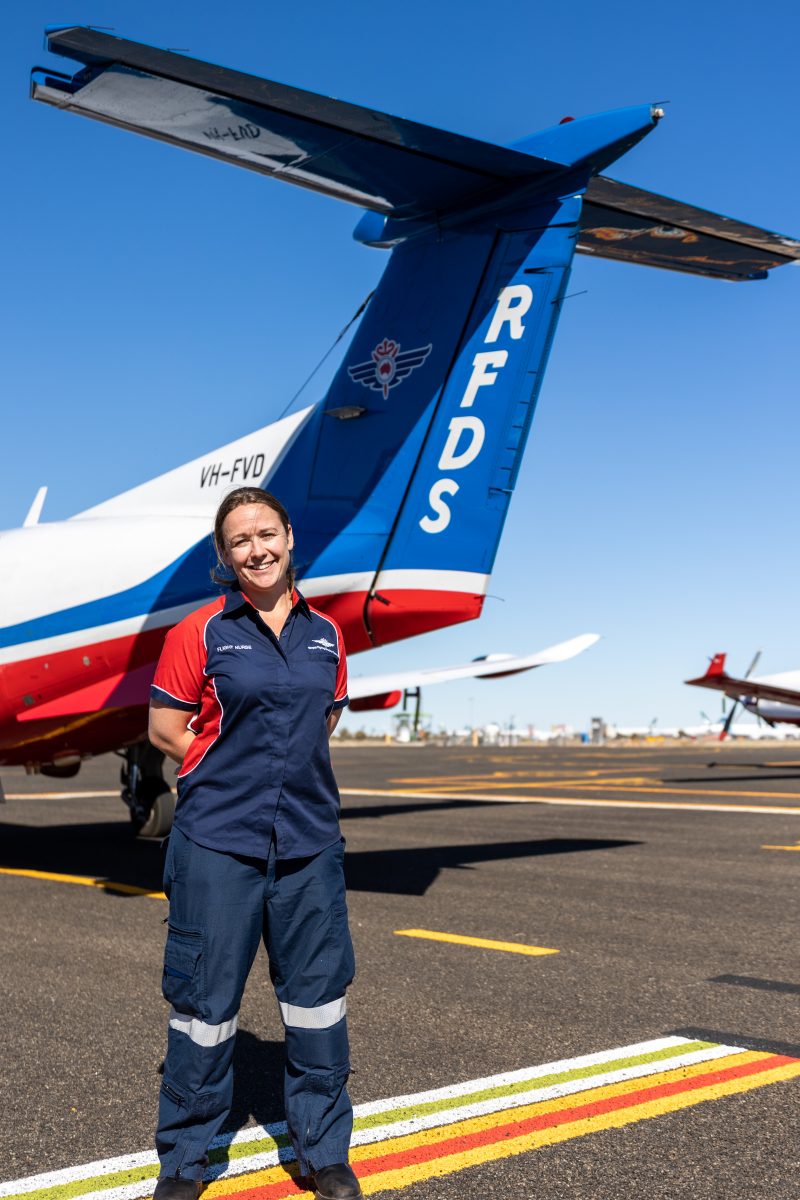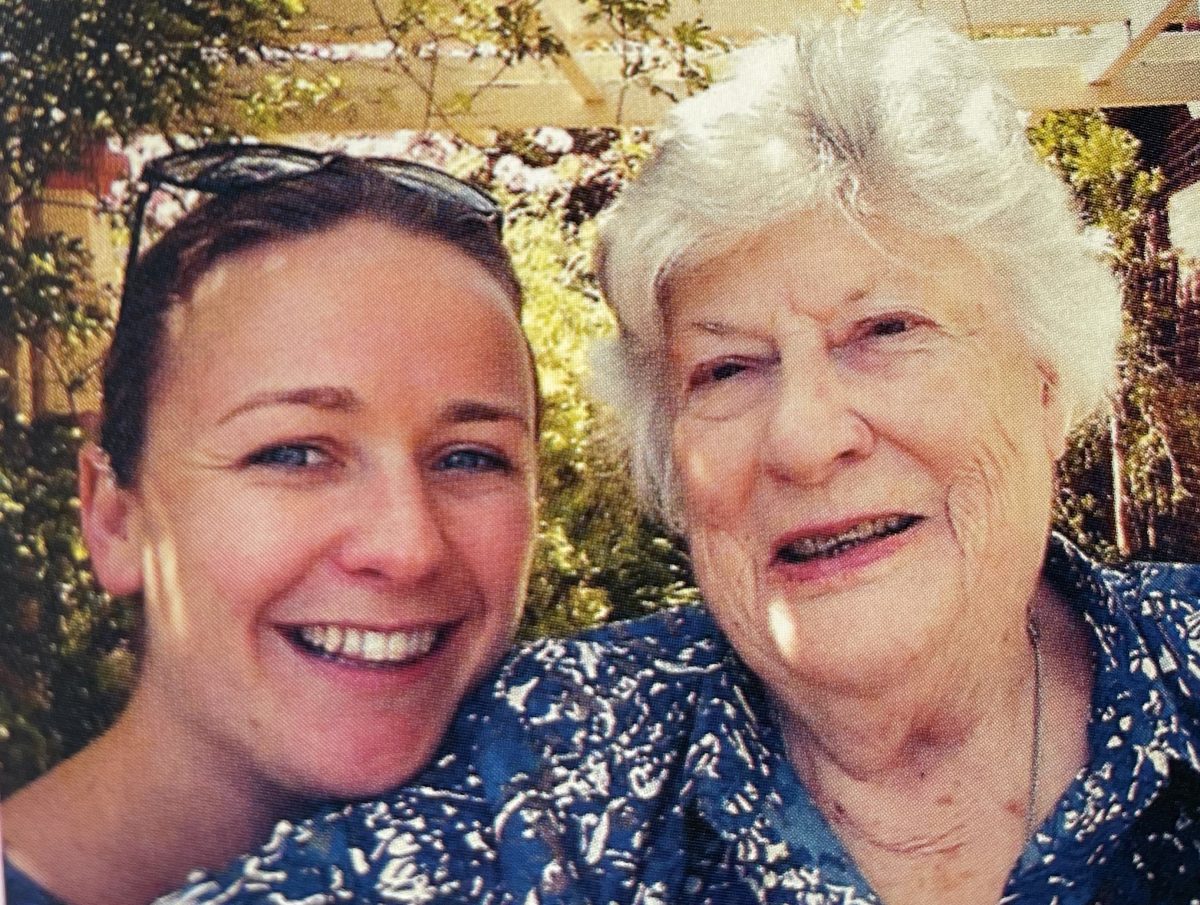
Prue Wheelwright from Crookwell now works for the Royal Flying Doctor Service in the Northern Territory – and has written a book about her adventures. Photo: Supplied.
One of Prue Wheelwright’s first memories was begging her father to let her poddy a newborn lamb because she knew it wouldn’t survive on its own.
It was on the family farm at Crookwell, in the NSW Southern Tablelands, at the height of the drought.
When animals were dying at such a rapid rate in the paddocks, there was no way, her father reckoned, it was fair to take on the responsibility of another animal.
“At the peak of the drought,” wrote Prue, “we had a mass grave for the sheep we had to destroy, the kinder option than them starving to death. This death pit was an entirely normal part of my childhood.
“It’s the cycle of life. We live and we die,” she said, saying this was what her father taught her at a young age.
Today, those words mark the opening of her book, The Flying Nurse, described as a story about saving lives and swaddling babies from outback Australia to Africa and beyond.
But it started, she said, in the small town of Crookwell, near Goulburn. As a member of the sixth generation of a line of Merino sheep farmers, she knows the land, her land, yet has spent almost most of her working life on the other side of the world, helping those people everyone else has forgotten about.
These days, she’s working for the Royal Flying Doctor Service in Alice Springs, but for most of her working life, she’s been deep in the crises that have been places like Ethiopia, Tajikistan, Saudi Arabia as well as our own vast outback.
It began when she was about nine when her family went on a trip to Bali. The family had gone to the Indonesian island for a long-needed break from the farm and stayed in a fancy resort. Prue remembers having the best of times, enjoying the hotel food and facilities, but thinking that, being in a foreign land there must be more.
On the flight home, her father asked if she’d like to go back to Bali one day, expecting her to respond with a firm “yes”. But, without hesitation, she said no. “Why?” he asked. She looked at the world map – “because look at all the other places to go”.
In her book she writes: “I don’t know if it was because of that moment – or because Dad told that story so many times – but travelling became a core part of my identity. It’s all I wanted to do.”
Ironically, Prue said she never set out to become a nurse. Rather than have a passion for it, she says it became more of a bargaining chip. She wanted to take a year off after school to travel; her parents were less keen. They compromised: she could travel for a year, taking on a “carer’s role” in London but had to come back and get a degree.
She described being a “relatively sheltered 18-year-old and being placed in a nursing home for severely disabled adults” as quite a shock. For the first few weeks, all she wanted to do was run away, but she persevered and within three months, she knew caring for people in need was her calling.
If anyone inspired the young countrywoman to pursue her spirit of adventure iced with compassion, it was a woman called Mardi who married Prue’s grandfather. “She was fearless,” Prue recalls. “She didn’t have any children of her own so she passed down her wisdom to me, my brother and our cousins.”
The Flying Nurse tells the stories of her life as a nurse across the world, from Sydney’s Royal Prince Alfred to a hospital in Riyadh where she had to deal with a young prince with a stubbed toe – who needed no care but had to be taken to the royal suite – and given a $500 “tip” to dealing with a princess who demanded all her pills be given intravenously because she “couldn’t possibly swallow a pill”.
After returning to Australia, she headed up north and trained to become a remote area nurse in Alice Springs, travelling across the outback, not knowing what she’d find at the next stop.
Later, she managed to fulfil another of her dreams – to work for Medicins Sans Frontieres (MSF). The training, she said, included how to avoid being kidnapped in a conflict zone.
Her first assignment was in Tajikistan, on a paediatric project for 12 months “where the doctors wore the kind of fleecy nightgown preferred by grandmothers” to keep warm.

Nurse, author, adventurer and Crookwell local Prue Wheelwright with the woman she describes as her inspiration, her “fearless, strong” grandmother Mardi. Photo: Supplied.
Many of the stories in the book are harsh, raw and disturbing, but they tell, with truth, what it was like for this Crookwell nurse to help save lives in some of the hardest places in the world to survive.
So how did she cope? Family, friends and a gin and tonic can help.
But when it all gets too hard, she thinks of the classic starfish story: “An old man sees a young boy throwing starfish back into the sea from a beach where tens of thousands of them lie. The man looks at the boy and tells him he won’t be able to make a difference. The boy picks up another starfish and throws it back into the ocean. It sure made a difference to that one,” he says.







